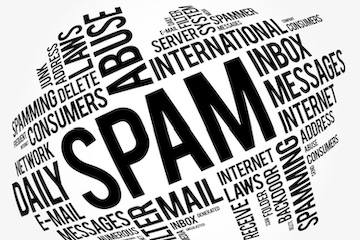Google Spam Policies, Explained – Practical Ecommerce
[ad_1]
Google launched this month updates to its core algorithm and spam insurance policies. It additionally issued widespread handbook penalties to websites with extreme AI-generated and low-grade content material.
Google is prioritizing spam — manually and algorithmically. Should you’ve skilled a decline in rankings however no handbook actions, audit your content material for potential spam violations.
Right here’s the place to begin.
Scaled Content material
“Scaled content material” refers to increasing articles quickly by way of automation or AI. Google has suggested in opposition to scaling for years. It has now offered instance violations:
- Utilizing generative AI to create content material.
- Scraping content material — e.g., from RSS feeds, search outcomes — and publishing it with out adjustments.
- Combining content material from many sources and republishing it with out alteration.
To my information, Google has to not date expressly disallowed AI content, however together with it now as “scaled” implies a dislike.
Expired Domains
Domains develop into out there when their house owners overlook or neglect to resume them. In lots of circumstances, expired domains retain hyperlink authority, prompting some search optimizers to purchase them after which publish new (vaguely related) content material or 301-redirecting the area to a third-party website.
Google now consists of such expired-domain ways as spam, however its examples are excessive:
- Affiliate content material positioned on earlier government-owned content material.
- Medical merchandise bought from expired domains of non-profit organizations.
- On line casino web sites hosted on domains beforehand owned by faculties.
Apparently Google is focusing on aggressive circumstances, however it might finally embody frequent makes use of.
Parasite search engine marketing
“Parasite search engine marketing” entails inserting low-quality content material on a trusted area. Google calls this “website fame abuse.”
Google’s examples primarily embody content material unrelated to the area, similar to:
- An academic website internet hosting a web page for payday loans.
- A information website internet hosting automated coupons.
The rules additionally emphasize an absence of editorial oversight and embody situations not thought-about spam:
- Press launch websites.
- Information publications with syndicated content material from different high quality publications.
- Websites with user-generated content material, similar to a discussion board or remark sections.
- Native or third-party advertisements, sponsored content material, or appropriately tagged affiliate links for monetization, not rankings.
- Manually chosen coupons.
Unaware?
Most companies have by no means participated in these ways, however some might have completed so unknowingly by way of exterior consultants. Keep watch over Search Console notifications and natural site visitors.
[ad_2]
Source link

